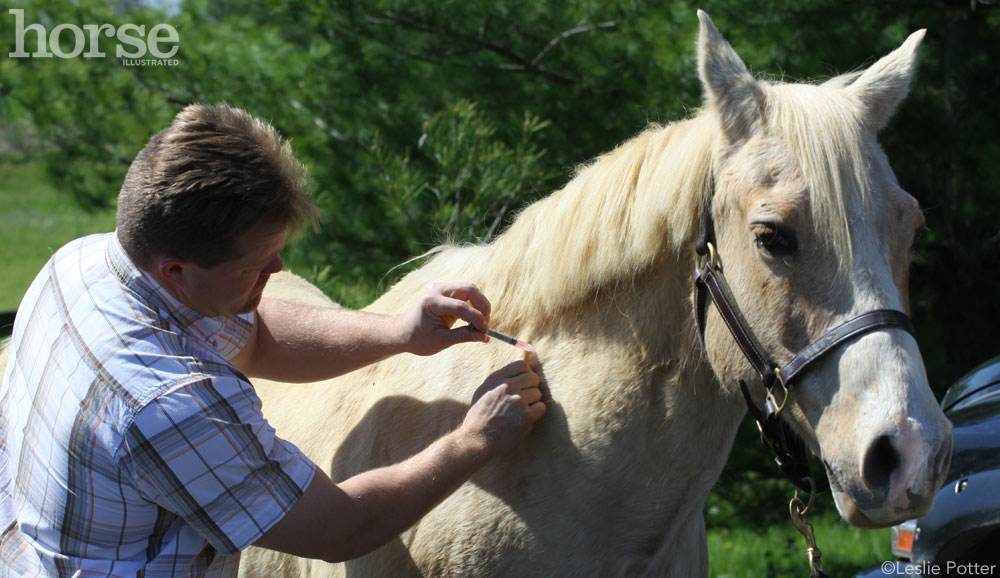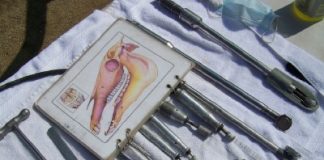Edited Press Release

The good news for horse owners is that vaccinations for these diseases are available. Click here for the American Association of Equine Practitioners (AAEP) vaccination guidelines.
“If horses aren’t vaccinated, this situation could become much worse,” says Kevin Hankins, DVM, MBA, Equine Veterinary Services at Pfizer Animal Health.
States like Florida that monitor the development of mosquito-borne diseases through sentinel chickens are seeing an upsurge in the detection of Eastern Equine Encephalitis across the state, and in many areas that are not usually affected. This is considered to be a serious warning that unvaccinated horses from across the country are at risk for contracting Eastern Equine Encephalitis as well as other mosquito-borne illnesses, particularly West Nile and Western Equine Encephalitis.
“Historically, we’ve seen Eastern Equine Encephalitis restricted to the south and southeast parts of the country,” says Julie Wilson, DVM Diplomate ACVIM at the University of Minnesota. “But we’re now seeing many cases reported in northern regions that include Michigan, Massachusetts and up into Maine.” In addition, officials at the Kentucky State Veterinarian’s Office have recently confirmed the first case of West Nile virus in Kentucky in 2010 in a mare with no history of immunization against the disease. California has also reported the number of West Nile cases to have more than doubled from 2009.
The AAEP says that Eastern Equine Encephalitis (EEE), Western Equine Encephalitis (WEE) and West Nile Virus (WNV) are considered core vaccinations for horses, along with tetanus and rabies. Though annual vaccinations should happen in early spring, the AAEP also recommends boosters after five or six months.
Pfizer Animal Health offers a trusted line of vaccines, including vaccines for EEE, WEE and WNV. All Pfizer Animal Health equine vaccines are backed by an Immunization Support Guarantee. Pfizer Animal Health will support reasonable diagnostic and treatment costs up to $5,000 if a horse properly vaccinated by a veterinarian with one of its antigens contracts the corresponding equine disease (EEE, WEE, WNV, Venezuelan Equine Encephalitis (VEE), Tetanus or Influenza).
“Given the activity we’re seeing in the northern states for Eastern Equine Encephalitis and for West Nile Virus across the country,” says Maureen Long, DVM PhD., Fern Audette Associate Professor in Equine Studies at the University of Florida and noted West Nile Virus researcher, “all horse owners within the United States should work with their veterinarians to make sure their vaccine strategies are appropriate.”







Good information
I wish humans had vaccines for these diseases too like horses do..
Always remember to vaccinate your horses!